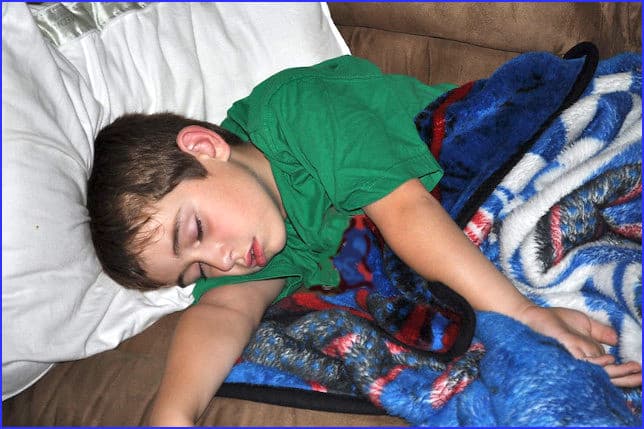
This blog has been tracing the progress of awareness about how detrimental television is. Back in 2011, Rose Eveleth wrote for Scientific American,
Television watching […] turns out to be a better predictor of bad eating habits than does parental weight, race and income, and a child’s gender and ethnicity — together…
One study published in the Archives of Pediatrics & Adolescent Medicine in 2006 estimated that for every hour of daily television, kids consumed an additional 167 calories.
With TV, it’s not just the sheer noise or the disturbing subject matter or the commercials for sugar-sweetened beverages and junk food that lead by a circuitous route, one way or another, to childhood obesity. Interference with sleep is now recognized as one of the screen-viewing side effects that blends with snacking and prolonged sitting. Another problem is the light itself, which spills from the screen.
In 2013, it came to the attention of researchers that children and adolescents were spending an average of almost eight hours per day staring at screened devices. A study of 1,803 teens revealed that the ones who spent more time with computers, TVs, video gaming setups, tablets, and cell phones were more likely to develop metabolic problems. They had dicey bloodwork and bigger waistlines.
Krysteena Stephens, M.A., IMFT, and Victoria Dunckley, M.D., reported that watching TV during meals has an undesirable effect because, for some reason, kids who do that eat less nutritious foods. This next example is rather heartrending because it concerns little children who were two, three, and four years old. The parents reported that…
[…] children who watched more television on average were twice as likely to consume soft drinks or other sweetened beverages every week. The article also reported a 50 percent increase in soft drink consumption for every additional hour of television the child watched.
If parents can’t change that situation, who can? One of the sticking points is that parents can’t even control their own lousy habits, and as the authors state, “Parental role modeling plays a predominant role in the health and weight of a child.” They go on to say,
Not surprisingly, parents who engage in higher levels of screen-time and sedentary behavior also have children who engage in more screen-related activities and sedentary behavior.
They mention another study which reported that, when preschool children watch two or more hours of TV each day, they are more likely to be overweight than the ones who don’t, and it messes with their ability to do things in the world:
Since self-discipline, motivation, and impulse control depend on executive functioning, indirect effects from screen-time may include dysregulated eating habits, being out-of-tune with bodily hunger and fullness cues, and lack of motivation to direct one’s energy physically.
Artificial light affects every aspect of the environment. A lot can be said about the carnage to nocturnal animals and migratory birds, any creature whose internal clock depends on melatonin. For humans, it seriously pulls the melatonin levels down. Our bodies mistake blue light for natural daylight, and people’s insomnia and overall tiredness are worsened even when they only peek at their phones during the night less than once a week — a pretty extreme reaction for such a small transgression.
Journalist Rebecca Boyle summed it up in a 2014 article:
A growing body of evidence shows that light pollution exacerbates, and might directly cause, cancer, obesity, and depression, the troublesome triumvirate of industrialised society.
Your responses and feedback are welcome!
Source: “Hidden Drivers of Childhood Obesity Operate Behind the Scenes,” ScientificAmerican.com, 10/13/11
Source: “An Overlooked Factor in the Childhood Obesity Epidemic,” PsychologyToday.com, 12/23/13
Source: “The End of Night,” Aeon.co, 04/01/14
Image by Ken Savage/CC BY-ND 2.0

 FAQs and Media Requests:
FAQs and Media Requests: 











